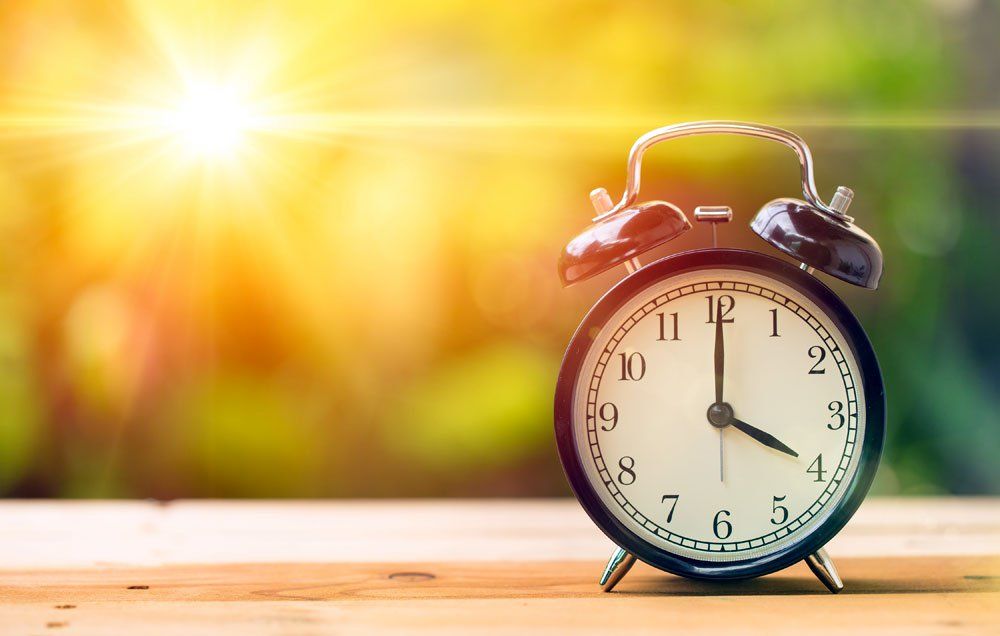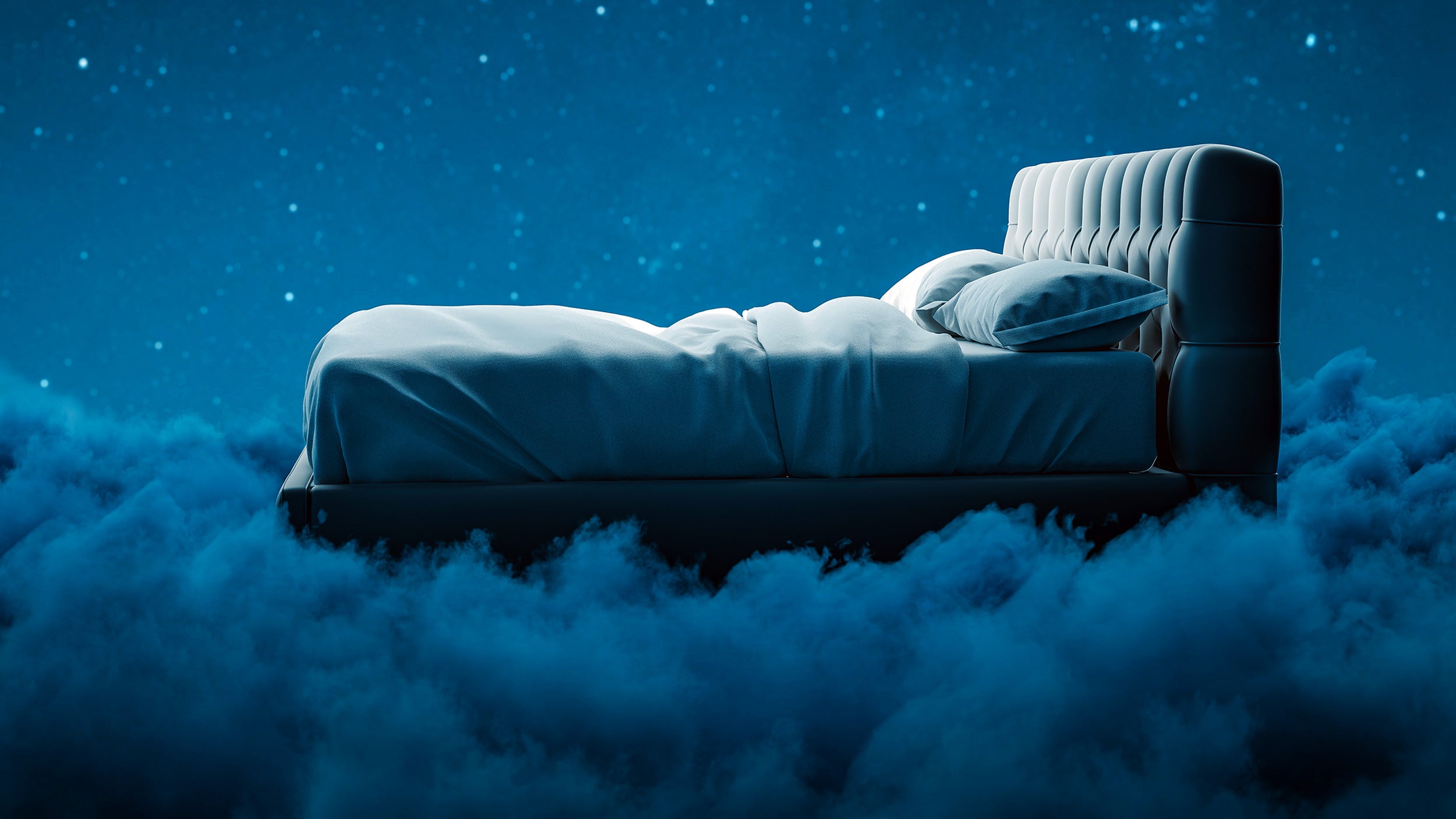Wakey Wakey!
There’s a better way to wake up. Here’s what experts advise. Not everyone is a morning person. But scientists say there are things you can do to develop a better relationship with your alarm clock.

Some people practically leap out of bed in the morning, while others dread dragging themselves out from under the covers. If you look at morning people with envy, is there anything that science says can make waking up easier?
Every morning, your brain needs to transition from sleep to waking. “It takes us a little while for our brains to come back online after we've woken up,” says Andrew McHill, director of the Sleep, Chronobiology, and Health Laboratory at Oregon Health and Science University. While your brain is booting up, you might get a hazy, confused feeling.
Known as “sleep inertia” or “sleep drunkenness,” this feeling is perfectly normal and typically lasts for 20 to 30 minutes after we wake up, McHill explains. But if it lasts longer than that, it could be for various reasons, McHill says, including insufficient or poor sleep, the sleep phase you were in when you woke up, or even a sleep disorder.
Keep a consistent sleep schedule—and get enough of it
Although he recognizes it’s easier said than done, McHill says the best way to feel less groggy in the mornings is to get enough sleep. While sleep experts usually recommend between seven and nine hours of sleep, the amount of sleep you need can vary from person to person.
As a rule of thumb, Helen Burgess, professor of psychiatry and co-director of the Sleep and Circadian Research Laboratory at the University of Michigan, recommends getting enough sleep so that you regularly wake up before your alarm clock.
Experts also say that consistency is key. Going to bed and getting up at the same time every day, even on weekends, can help you wake up and fall asleep more easily.
“Our circadian system is constantly trying to predict the regular changes that occur in the 24-hour day to optimize our physiology best to meet that,” Burgess says. For example, before you wake up, your body prepares itself to meet the day by churning out the stress and alertness hormone cortisol and other hormones. If your sleep schedule constantly shifts around, “it’s harder for the circadian system to predict when you’re going to wake up.”
Go to bed at the right hour
When you go to bed also matters. But where it gets tricky is that’s also different for everyone.
Sleep research typically classifies people into two categories, called chronotypes: night owls and early birds. Night owls prefer to sleep and wake later, while early birds prefer to sleep and wake up early. Recent research shows that this binary is more of a spectrum, and it’s possible people might find themselves somewhere in between.
Our society loves an early bird—and so you may have been inundated with advice to start your day earlier. And evidence does suggest early rising correlates with improved mood and job performance. One 2021 study showed that setting your alarm just an hour earlier can relieve depressive symptoms. Meanwhile, other studies correlate night owl tendencies to mood disorders and other diseases.
But whether night owls should try to shift their circadian clocks is a source of controversy in the sleep field. Burgess explains that night owls’ poor health might not be because of their natural sleep patterns but because they had to sacrifice sleep to meet work or social obligations in a world designed for early risers.
There’s also little we can do about our natural preference for when to go to bed, explains Molly Atwood, assistant professor of psychiatry and behavioral sciences at Johns Hopkins University. Our chronotypes are genetic and hardwired into us at the cellular level, she says.
That’s why Atwood recommends listening to your body—and not trying to shift your chronotype if you can help it. “There’s a growing body of evidence that when you are sleeping at a time that is mismatched with your body, that can absolutely be related to physical health problems,” she says.
If you need to shift your chronotype to fit your lifestyle better, Burgess suggests doing so slowly, shifting by no more than 15 minutes each day. “The worst thing you can do is suddenly start waking up an hour or more earlier,” she says.
Light in the morning, not at night
Our brains have evolved a system to control sleepiness and alertness on a 24-hour cycle that’s based mainly on light. This circadian cycle is overseen by the suprachiasmatic nucleus (SCN), a network of neurons in the hypothalamus, one of the oldest areas of the brain. Cells in the SCN are light-sensitive; they kickstart the production of the sleep-regulating hormone melatonin when it’s dark in your environment, then shut it off when it’s light out.
Studies show that light is vital to establishing consistent, healthy circadian rhythms. Morning light can increase alertness and be a pretty effective antidepressant. “It’s a strong signal to your circadian system,” Burgess says. “It’s probably the most beneficial light we get during the day.”
In the nighttime, however, light can confuse our circadian systems, making it harder for us to fall asleep. That’s why sleep specialists suggest putting your phone away and turning down the lights at night. There’s evidence that later chronotypes are more sensitive to artificial light, so a night owl’s late-night tendencies might have to do with their light environment as much as their genetics.
Quit the snooze button and wake up a little more gently
Relying too heavily on the snooze button for that extra bit of sleep can make you feel worse in the morning, experts say. Atwood explains that snoozing causes something called sleep fragmentation.
During healthy sleep, a person progresses through multiple sleep stages, including multiple stages of non-REM sleep, which includes deep or slow wave sleep, and REM sleep, during which dreaming occurs. Frequent awakenings can disrupt the sleep cycle, leading to sleep fragmentation and causing exhaustion and poor cognitive performance later in the day.
Your sleep stage also plays a role. McHill explains that being woken up during deep sleep can cause more sleep inertia than getting up during REM sleep.
Instead, using an alarm that wakes you up gradually might help you feel better in the morning. An alternative that might help is a light-based alarm clock that gets brighter and brighter.
Though it’s likely no substitute for sunlight, some studies show that artificial light in the morning can improve mood and reduce sleep inertia. So people whose bedrooms get little morning sunlight might benefit from supplementing their morning light exposure with a light alarm.
Exercise, and stay away from alcohol and caffeine
There are also a few lifestyle changes you can make to feel better in the morning.
“Exercise is a great way to improve sleep,” Burgess says. Exercise improves the restorative sleep we fall into periodically during the night, called slow-wave sleep, she explains—which can help you feel more rested when you wake up the next day. There’s some evidence that exercise can help people fall asleep faster and even combat insomnia.
However, experts caution not to overdo it right before bed because heavier-than-normal exercise in the evening can lead to sleeplessness. “Depending on the exercise, if it’s intensive cardio work or something, it can take the body a while to wind down after that,” Burgess says.
Unfortunately for the many people who can’t imagine a morning without coffee, a cup of joe can disrupt that all-important slow-wave sleep—“even a basic cup of coffee in the morning around 7 a.m.,” Burgess says. She recognizes that people are unlikely to give up their caffeinated beverages, so she suggests to stop drinking caffeine at around noon.
Avoiding alcohol can also help you get better sleep. Studies show that alcohol can help you fall asleep, but the sleep you get will likely be lower quality. “Alcohol is the number one sleep aid,” Burgess says. “But it will disrupt your sleep later, so it’s not good.”
The bottom line
If you’re getting enough sleep and still feel tired, it might be worth visiting a sleep specialist and ruling out a sleep disorder, Atwood says. “There are lots of us around and we have pretty effective treatments for helping you get better quality sleep or helping you feel more alert in the morning.”
Source
https://pubmed.ncbi.nlm.nih.gov/36870101/#:~:text=Caffeine%20consumption%20reduced%20total%20sleep,sleep%20onset%20of%2012%20min.
https://www.sleepfoundation.org/nutrition/alcohol-and-sleep
https://www.ninds.nih.gov/health-information/public-education/brain-basics/brain-basics-understanding-sleep
https://www.sleepfoundation.org/
































































